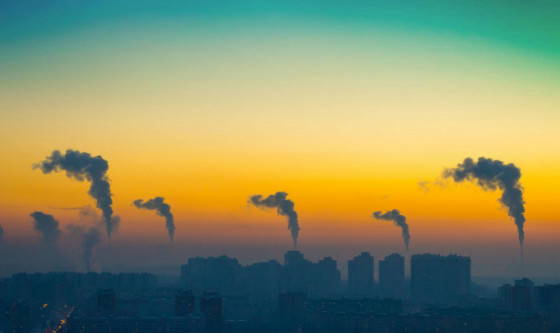In hundreds of climate actions today, Nigerian climate activists are joining activists worldwide to demand that governments in the Global North pay $5 trillion a year as a down payment on their climate debt. This action demands recompense for the nations, individuals, and communities in the Global South that experience the worst effects of climate disasters while making the smallest contribution to global emissions.
Over 75% of the total emissions that the globe has generated since industrialisation may be attributed to the Global North, which is made up of the developed countries of the world. The poorer and least-developed nations that comprise the Global South, on the other hand, bear a disproportionate share of the damage caused by climate change, which includes rising sea levels, harsh weather, and extensive devastation.
Climate activists contend that developed nations have an obligation to assist developing nations in addressing climate change, make up for losses and damages, and guarantee a fair shift away from fossil fuels and towards renewable energy sources and societies that are robust to climate change.
According to a 2023 study, even if global warming is kept to 1.5°C, the Global North will still owe the Global South $192 trillion in just compensation by the year 2050. This indicates the magnitude of the financial debt the Global North owes the Global South, amounting to an annual climate debt of $5 trillion.
Ahead of Climate Week NYC, the rallies are the culmination of a global week of action in which civil society organisations are calling on wealthy nations to foot the bill for their careless use of fossil fuels, which has had catastrophic effects on the climate across the globe.
These acts draw attention to the pain that communities are experiencing as a result of lost lives, damaged infrastructure, crop failures, landslides, and destroyed livelihoods in places including Africa, Asia, Latin America, the Pacific Islands, and the Caribbean.
“Payment for historical liabilities should not be up for debate,” emphasised Akinbode Oluwafemi, Executive Director of Corporate Accountability and Public Participation Africa, or CAPPA. “Countries whose development came at the expense of vulnerable Global South nations must commit to climate finance on the grounds of fairness, equity, and collective responsibility.”
We are resolved to coerce them into having a meaningful conversation because their resistance indicates intentional avoidance. Activists are urging the Global North to invest trillions, not just billions, to climate finance as the UN COP29 climate meeting in Baku, Azerbaijan, draws near in November. One of the main topics of discussion at COP29 is expected to be a new global target on climate finance.
Gina Cortés Valderrama, co-facilitator of the UNFCCC Women and Gender Constituency, said: “Climate finance has been framed as charity from the rich to the poor for far too long.” However, the truth is that centuries of colonial exploitation and imperialism have caused an ecological catastrophe. We need to redefine climate financing as a question of justice at COP29. Grants, not loans, are required to settle the ecological debt owed by the Global North.
Loans trap countries in unmanageable debt and jeopardise human rights. Even with the commitments reached at the Dubai COP28 to move away from fossil fuels, the Global North is still putting economic growth first and building more infrastructure for coal, oil, and gas. Actors demand an end to the spread of fossil fuels and new investment plans, and thus increases their mounting debt related to climate change.
Lidy Nacpil, the coordinator of the Global Campaign to Demand Climate Justice and the Asian Peoples Movement on Debt and Development, stated: “It is unacceptable that governments in the Global North still refuse to fulfil their obligation to provide sufficient climate funding to the Global South.
Developed countries need to commit to a climate finance objective that accounts for loss and damage, adaptation, mitigation, and just transition if they are serious about tackling climate change. Trillions, not billions, are owing to the Global South.











